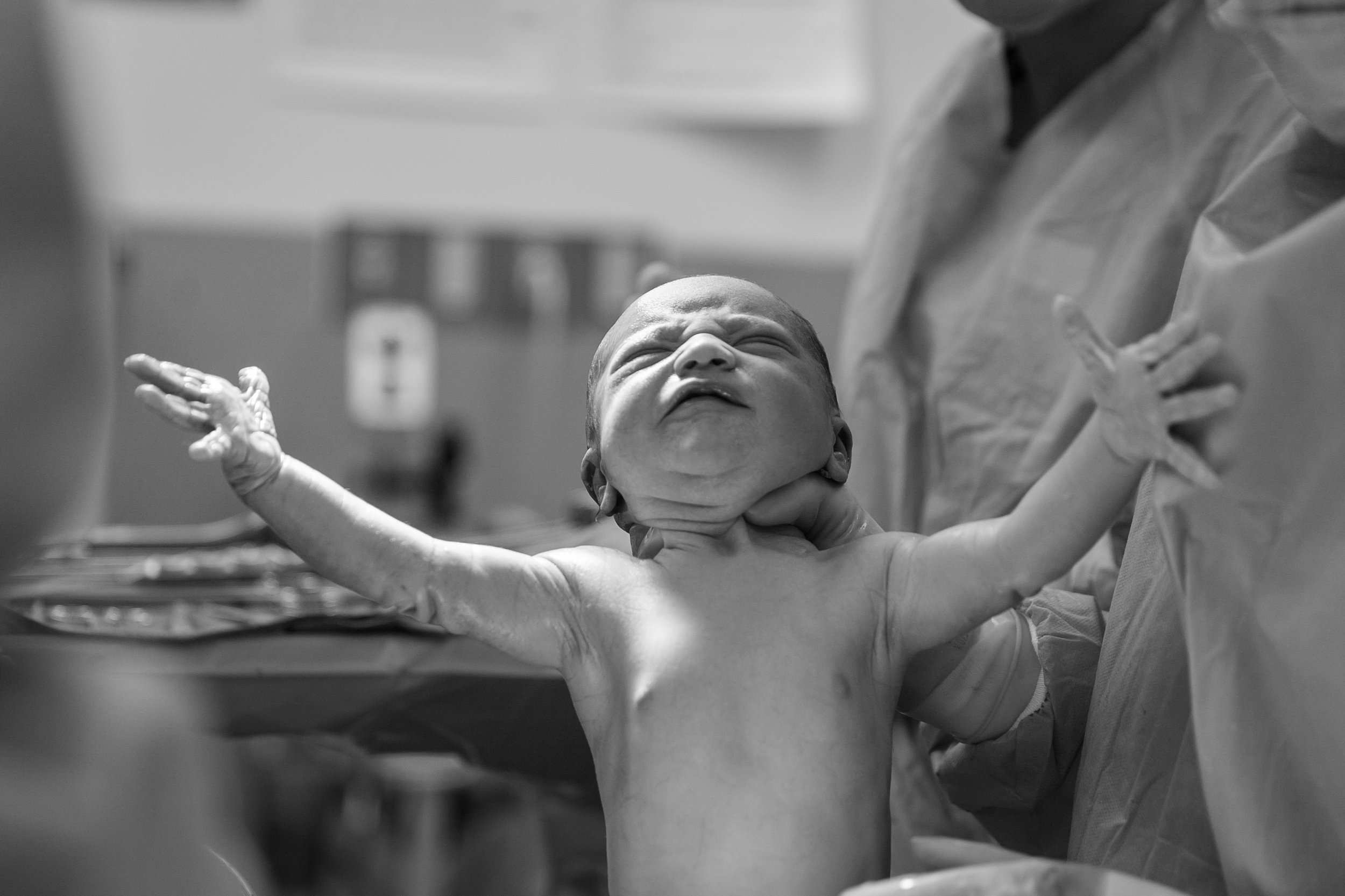When Labor and Delivery Get Cosmic
Photo by Alex Hockett on Unsplash
When’s the last time you said to yourself, “That just isn’t right”?
I’m talking about our reaction to some terrible situation, some unfairness, some inhuman cruelty. You feel anger or sorrow or an aching sense of bewilderment over the indignity done. The sheer wrongness.
And it doesn’t help that the news sometimes seems downright apocalyptic. With temperatures soaring, breaking records, wilting people’s souls. Injustice in full display. And all the while our communities are more divided, polarized, at odds than ever.
Paul Simon captured some of this in one of his early solo songs, “American Tune”:
I don't know a soul who's not been battered
I don't have a friend who feels at ease
I don't know a dream that's not been shattered
Or driven to its knees. …
[W]hen I think of the road we're traveling on
I wonder what's gone wrong
I can't help it, I wonder what's gone wrong
***
The Old Testament is full of protests with God, wondering what’s gone wrong. You can just about picture the psalm writers, for instance, sometimes shaking their fists at heaven in frustration, struggling with what’s not right.
Same with the apostle Paul’s letter to the Romans. His writing there sometimes gets a bad rap for being hard to understand. And it’s true that in places his vision of faith ascends to lofty heights, just out of reach of our comprehension. Sometimes Paul’s thought takes work.
But there are places in this letter where Paul describes our human situation so well that we readily understand him; we instantly identify with him and what he writes. While he soars, he also connects.
Paul’s word in Romans 8 is one such case in point, where he says, “We know that the whole creation has been groaning in labor pains until now; and not only the creation, but we ourselves groan inwardly.”
There’s that sense again that things aren’t what they are supposed to be. He says poetically what we all know viscerally, what we feel in our gut: That things go badly, sometimes heartbreakingly wrong. That sometimes, as seventeenth-century writer John Bunyan put it, our prayers “have more groans than words.” That something more, something new and better, is aching to be brought into the world.
For sometimes while you wait living hurts. We look around and we wonder why resolution or rescue needs to tarry. We yearn for the new life that we believe will come.
Paul catches that feeling and says that while as Christians we experience the joy of new life, the anticipation of carrying around a child in a womb, we know there’s struggle involved. The birth process comes with pain.
Delivering a child is called labor, after all.
And that reality hits us as life goes on in our earliest childhood. For children know the reality of injustice. They get bullied or hit or hurt on a playground, and become aware of the hardness of the world. They get taunted for their skin color or habits that some call weird. They get a cancer diagnosis. A parent or caregiver proves erratic.
Then later, struggles continue; youth and young adults have a higher rate of depression and anxiety than ever before. They are worried sick. Some can’t seem to get ahead because of systemic, structural biases.
Later still there’s the reckoning of midlife, or the diminishments of aging, which is not for the faint of heart.
To say nothing of our global-scale anxieties.
So Paul talks about all of creation participating in the not-rightness of things. The whole of the creation becomes personified. As though it shares with us in our sorrow. As though not only nations and peoples, but also trees and oceans and mountains, our climate, participate in the brutal reality of an imperfect, fallen world.
So we groan, in Paul’s simple but memorable word, over how cruel people can be to one another. How cruel we can be to another.
The whole creation also knows something else, as Paul develops the image of labor pains. For creation shares in the labor pains that lead to God’s new thing coming. Creation strains for the end of the suffering of childbirth.
We are talking about not only the newness of birth, but also a vision for a new world, our longings finding cosmic fulfillment
Which means that while the world feels pangs sometimes, life is on the way. Thinking about the possibility can give us a burst of energy or keep us from despairing. Yes, it is a broken, wounded world. A world agonizing in its hard waiting for some resolution.
But life is stirring. And glorious light will someday burst on to the scene in more stunning fullness. The sad things will be undone. The forces of evil, which resist God, will not be able to defeat God.
So we watch for glimpses of Glory that appear within ordinary human history. That pop up in our everyday lives. Scenes of hope and light that flash out. We can pay attention to the reminders every day, if we keep our eyes peeled for them, if we tell ourselves how labor pains lead to something worth waiting for.
All creation waits with eager longing, Paul says. We look not just around, but up and ahead. We wait, and watch. We see wonders of life alongside the pain.
Might that mean that we don’t give up; that we never give up hope?
